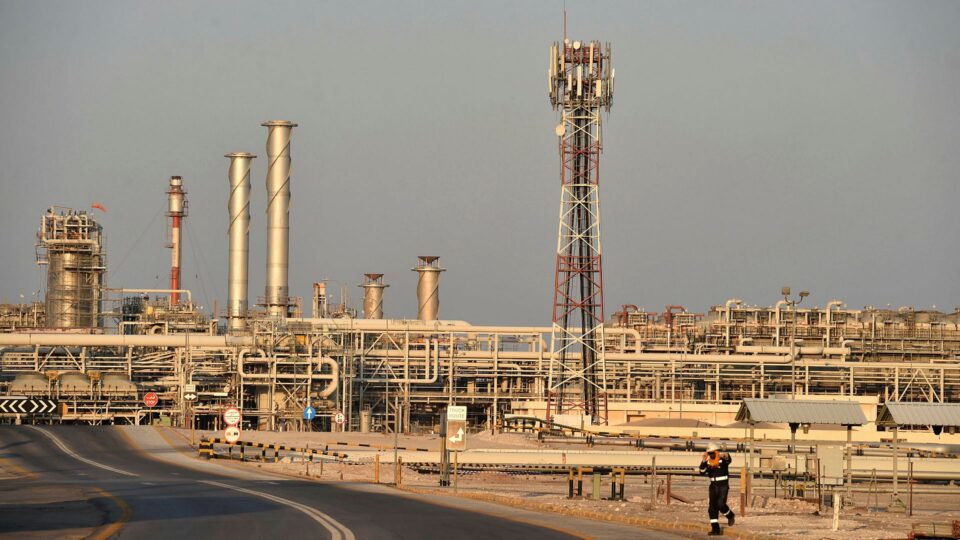On April 2, 2023, the Saudi Arabian Ministry of Energy declared that it will implement voluntary cuts to oil output, which would cause an immediate rise in fuel prices.
According to the government ministry, from May 2023 through the end of the year, the nation will reduce its oil production by up to 500,000 barrels per day in cooperation with other Organization of the Petroleum Exporting Countries (OPEC) and Non-OPEC Participating Countries.

According to a statement from the ministry, “the official of the Ministry of Energy highlighted that this is a preventive action aimed at supporting the stability of the oil market.” In the course of the past five months, there have been two output cuts. OPEC and non-OPEC ministers decided to reduce production by two million barrels from November 2022 to December 2023 in October 2022.
Crude Oil (CL=F) prices on the New York Mercantile Exchange (NYMEX) increased as a result of the most recent statement, rising from $75.67 per barrel to a high of $81.43 on April 2, 2023. As of April 3, 2023, 11:41 AM (UTC +3), the price per barrel is $79.92. From its peak on January 23, 2023, when the commodity completed the day of trading at $81.62 per barrel, oil prices have plummeted in recent weeks, falling as low as $66.74 per barrel on March 17, 2023.
cost volatility associated with fuel
Oil markets have gone through a period of turbulence recently. The first lockout in April 2020, when oil traded for less than $0, is possibly the best illustration of this.
Following Russia’s invasion of Ukraine on February 27, 2022, it achieved its most recent peak on May 6, 2022, when it was trading at $120.67 on the NYMEX. Since then, it has been declining, enabling big fuel consumers, such as airlines, to temporarily cut expenses.

The International Air Transport Association (IATA), which represents more than 300 airlines worldwide, predicted that the cost of fuel for the aviation sector will climb to $222 billion by the end of 2023 and reach $229 billion by the end of 2024. The organization stated, “IATA’s prediction is predicated on Brent crude at $92.3/barrel (down from an average of $103.2/barrel in 2022)”. On December 6, 2022, when IATA released their prediction, Brent Crude (BZW00) was trading on the NYMEX for $78.36 a barrel. On April 3, 2023, the commodity’s opening price for the day was $81.23 per barrel.
Airlines in the nation used 1.413 billion gallons (5.3 billion liters) of fuel in January 2023, which is 4% less than in December 2022, according to the United States (US) Bureau of Transportation Statistics (BTS), a division of the Department of Transportation (DOT). According to the BTS, the price of gasoline in January 2023 ($3.28) increased by 14 cents (4.3%) from December 2022 ($3.14) and by $1.37 (71.7%) from January 2019; the overall cost of fuel in January 2023 ($4.63 billion) was also 0.2% higher than in December 2022 and 70.6% higher than in January 2019.
American Airlines said that while it generated $48.9 billion in revenue for the entire year, its operational costs came to $47.3 billion in its 2022 annual report, which was released on February 23, 2023. Its fleet makes it one of the biggest in the world, and in 2022 it turned a $127 net profit as opposed to a $1.9 billion deficit the previous year.
The airline reported that overall expenses in 2022 accounted for 29% of fuel-related costs, up from 22% in 2021. Unsurprisingly, as more capacity was added to its network, American Airlines’ planes used more gasoline, yet between 2021 and 2022, the average price per gallon increased from $2.04 to $3.54.
According to the airline’s predicted mainline and regional fuel usage for 2023, a one cent per gallon increase in airplane fuel prices will result in a $40 million annual increase in fuel costs for that year. Furthermore, the airline had no fuel hedging contracts as of December 31, 2022 due to its policy “not to enter into transactions to hedge our fuel use,” with the caveat that it does “evaluate that policy from time to time based on market conditions and other reasons.”
As a result, and if we do not enter into any further contracts to hedge our fuel use, we will continue to be totally exposed to swings in aircraft fuel prices, the airline said in its conclusion.




